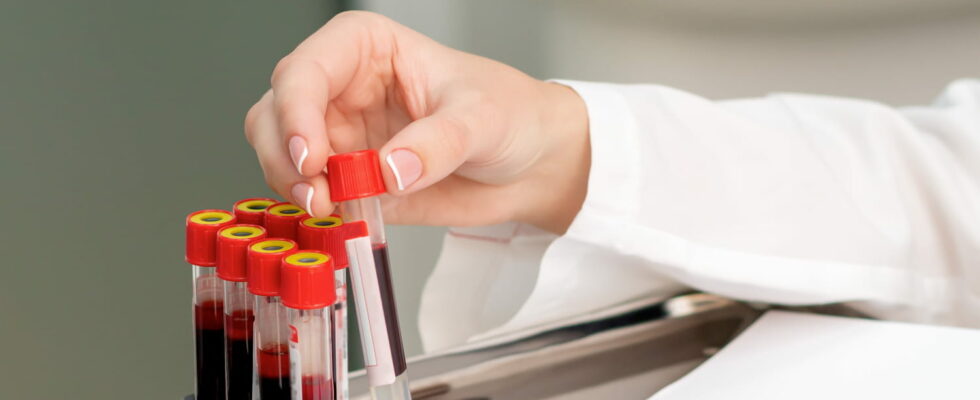Liquid biopsy could make it possible to detect cancer early with a simple blood test.
A subject of study in oncology for only about ten years, liquid biopsy could make it possible in a few years early detection of cancers by blood test. “Around the world, around ten teams are working on cancer screening using a blood sample in which we are looking for circulating DNA. It is entirely possible that in 5 to 10 years we will have a universal cancer screening test from circulating DNAenthuses Alain Thierry, research director at the Montpellier Cancer Research Institute, who adds: “the simplicity of this screening will undoubtedly make it much more acceptable to patients than existing screenings”. For him “this is a major step forward, particularly for lung cancer, because tumors are difficult to access and tissue biopsies are often uninformative regarding the genetic mutations of the tumor”. An English clinical trial presented in June 2024 at the ASCO annual meeting in the United States showed that this type of biopsy could predict the risk of (breast) cancer recurrence several years before tumors are visible on the scans. .
What is a liquid biopsy?
Term specific to oncology, a liquid biopsyalso called “fluid biopsy”, is a blood test to look for cancer cells or some DNA fragments from a tumor circulating in the blood. It can also be more rarely carried out on urine or saliva samples. At a certain stage of disease progression, cells are released from the tumor. They circulate in the blood and are responsible for possible metastases. “The study of these cells is very interesting for fundamental research because it allows us to understand how does metastasis occur in a distant organ. But clinical and routine use remains quite complicated, because it is difficult to specifically control these cells, which are very few in number in the blood., explains Alain Thierry. In cancer patients, we observe release of DNA tumor cells in the blood. “Circulating DNA has the same genetic alterations as the cells from which they come. So, with a simple blood test, a very minimally invasive examination, we can determine the genetic alterations of the tumor”, notes the specialist. Although liquid biopsies present considerable advantages, conventional biopsies remain essential for making the initial diagnosis of cancer, defining the stage and studying the tumor environment.
For who ?
The collection of circulating DNA is prescribed for detection of certain mutations. Depending on the mutations observed, the oncologist will know if it is possible to use targeted therapy, a latest generation treatment that only targets abnormalities in cancer cells. “For this application, liquid biopsy is indicated in metastatic colorectal cancer, lung cancer and melanoma“, specifies Alain Thierry. Liquid biopsy should very soon also make it possible to monitor the effectiveness of a treatment and of know if the cancer comes back. “With liquid biopsy, we can monitor, via circulating DNA, the recurrence of the tumor in the blood, during treatments and patient follow-up. The clinician can also observe, if necessary, the resistance of the tumor to treatment. This will be a very effective monitoring of the disease, through a simple blood test.”continues the researcher.
“Thanks to liquid biopsy, we will be able to know whether or not to treat the patient after surgery”
Liquid biopsy does not currently allow cancer detection. “But it will soon be applicable for detection of minimal residual disease (cancer cells persist after treatment, editor’s note), this is already the case in the United States. Concretely, after removal of the tumor, in stage 2 or 3, we offer adjuvant treatment even though we do not really know if the patient really needs it. Thanks to liquid biopsy, we will be able to identify mutated DNA in the patient’s circulating DNA. We will therefore know whether or not to treat it after surgery.”develops the specialist.
Liquid biopsy is a simple blood test. The sample is then observed in laboratorylooking for cancer cells or mutations in circulating DNA.
Where to do a liquid biopsy?
A liquid biopsy can be carried out in all cancer centers scattered throughout the country. “All cancer centers use it for the detection of genetic mutations in lung cancers, melanomas and metastatic colorectal cancers“, informs our expert. If the mutations targeted by existing targeted therapies are indeed present, then the practitioner can use them.
Thanks to Alain Thierry, research director at the Montpellier Cancer Research Institute.
